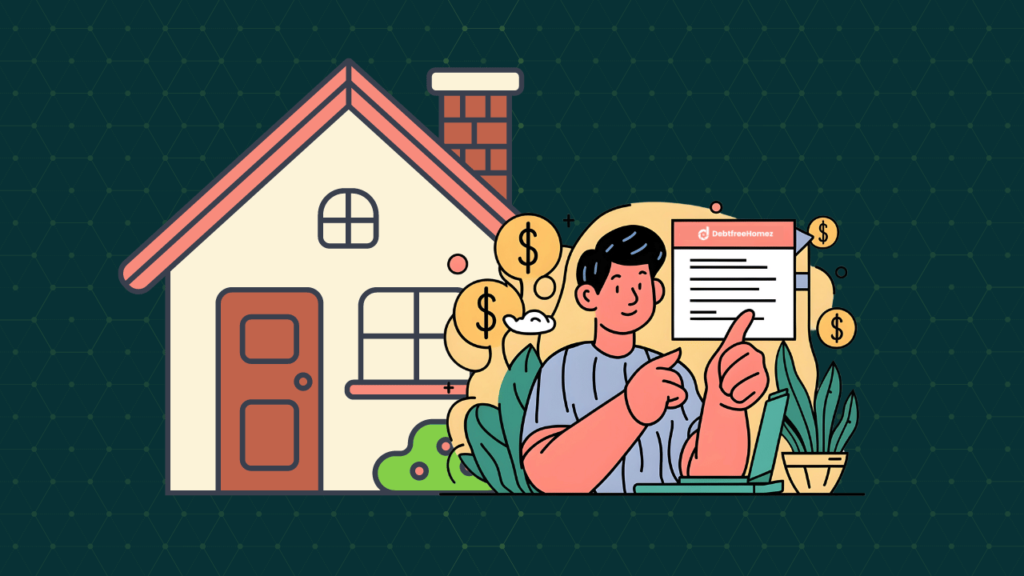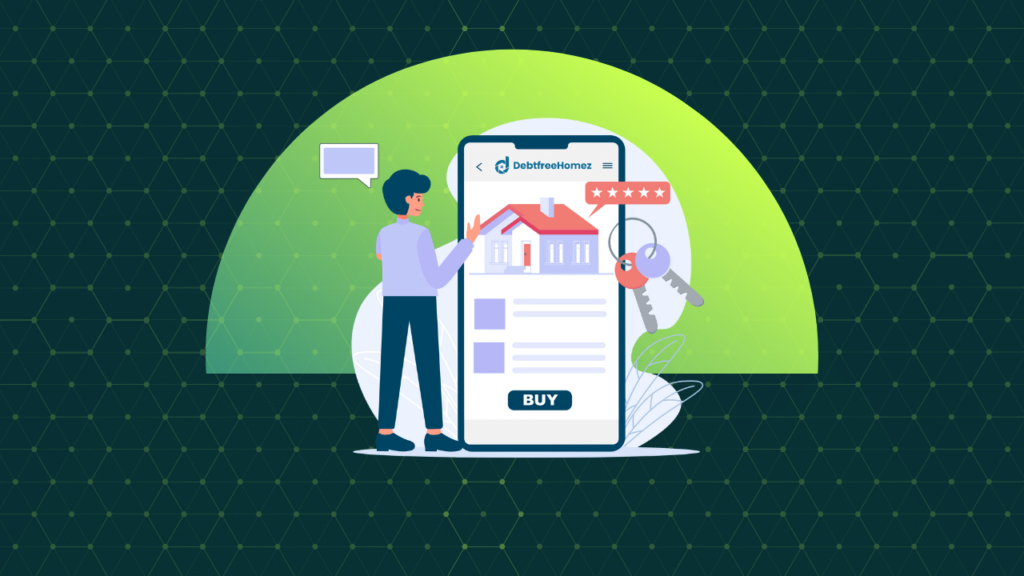Buying a home is a long, complicated process. For first-time homebuyers, it can be downright overwhelming. From securing the finances to finding experienced professionals to work with, the learning curve is a steep one. Get ahead of the game with these top 5 tips for first-time homebuyers.
1. Be Sure You’re Financially Ready
Before getting too bogged down with the complexities of first-time homebuying, you’ll want to consider if you’re even financially ready to buy your first home. And if you’re not, what will it take to get there? Here are some questions to consider when seeking Tips for First-time Homebuyers:
How much do homebuyers need to put down?
A down payment is the portion of a home’s buying price that needs to be paid upfront. Typically, this amount ranges from as low as 3% to as high as 20% of the home price. Keep in mind, though, that some lending options may have different requirements for a down payment. Also, while a smaller down payment might be easier to save for, it will also mean a higher monthly payment and interest rate. Many lenders even require private mortgage insurance (PMI) on loans with down payments that don’t meet the 20% threshold which takes even more money out of your pocket.
How well have you budgeted?
Saving for a down payment is just the first step to becoming financially ready to buy your first home. You’ll also need to develop a sound budget to ensure that you’re able to afford the costs of homeownership in addition to your other expenses. You’ll need to account for all regular expenses such as transportation costs, groceries, healthcare, debt payments, retirement savings, and any other types of spending you generally do each month. Then, you’ll have to factor in the costs of homeownership like the monthly payment, the insurance costs, taxes, maintenance costs, and utility bills. It’s also highly recommended to have an emergency fund that you keep separate from your other savings in case of a sudden unexpected expense. Most experts suggest having between 3-6 months’ worth of living expenses as financial security.
Is your credit score in good enough shape?
Your credit score reflects your likelihood of being able to pay your bills on time which directly impacts your ability to secure a mortgage with friendly interest rates. While saving for a down payment, you should check in regularly on your credit score and do what you can to improve it. Generally, a good credit score is higher than 620, but remember, the higher your score, the better your interest rate will be. Easy actions to increase your credit score include paying bills on time, keeping your debt balances low such as a credit card or auto loan, and checking your credit report for errors or discrepancies.
Do you have enough saved for the closing costs?
Closing costs consist of the fees and expenses that are paid upon finalizing the home purchase. They can include origination fees, appraisal fees, title insurance, attorney fees, prepaid property taxes and insurance premiums, and escrow expenses. In total, these fees and expenses can add up to between 2% and 5% of the total loan amount, so in addition to the down payment, you’ll want to have enough saved to cover the closing costs as well.
2. Consider Your Needs and Long-Term Goals
Buying your first home is a big step, so there’s a lot to consider before going shopping. You’ll want to consider all of your needs and wants while weighing your options against your financial situation and your long-term goals. Be sure to give plenty of thought to these common questions for choosing a home when seeking Tips for First-time Homebuyers:
Where do you want to live?
Considering locations and neighborhoods is a great place to start when evaluating your needs and long-term goals. Important factors might include your proximity to work and commute times, access to regular necessities like transportation, groceries, and other amenities like parks, gyms, and shopping centers. You’ll also want to consider the future and growth potential of the area and evaluate the possible impacts on property values and living standards. It might also be important to you that you live in a specific setting. While some people prefer the hustle and bustle of an urban environment, others prefer the quiet solitude of suburban or rural neighborhoods.
What type of home and size would be most compatible for you?
There are plenty of different types of homes to choose from. You might opt for a single-family home of various sizes, townhouses, condominiums, co-ops, or multi-family properties. Each one comes with its own considerations so do your research before going shopping. You’ll also want to consider your current and future spatial needs. How many bedrooms and bathrooms are ideal? Do you prefer larger living and outdoor spaces? Do you require plenty of storage space? It could also help to be mindful of the possibility of expansion and renovation in the future, too.
Have you examined the impact of age and condition on the value of a home?
You’ll also want to weigh the benefits of buying a new home as opposed to a resale property. New homes will offer modern features but come at a higher cost while resale homes may be more affordable and come with established neighborhoods, but they also might require a lot of maintenance and repair costs. You’ll then need to balance these aspects against affordability and investment potential for equity growth when deciding on a home to pursue.
3. Explore All Your Homebuying Options
Once you’ve nailed down where you’d like to live and the kind of home you’d like to buy, you’ll want to start looking into financing options. There are plenty of options to choose from these days, each with their own advantages and disadvantages. Consider these questions when evaluating your homebuying options:
What types of mortgage loans are available?
Mortgage loans are the traditional means for home buying. They’re offered through private lenders and require a hefty down payment and interest rates and terms that may be adjustable or fixed. It may also be possible to qualify for a Federal Housing Administration (FHA) loan which is popular for first-time homebuyers as they require low down payments, but they could also come with higher interest rates and insurance premiums. There are also VA loans offered to eligible veterans, active-duty service members, and spouses or USDA loans for eligible rural and suburban homebuyers.
Have you explored alternatives to traditional mortgage loans?
Mortgage loans aren’t the only means for purchasing a home. You can also check into rent-to-own options, owner financing, and home equity sharing. There’s also a new revolutionary homebuying model for buyers looking to skip the massive upfront costs and monthly interest rates of a mortgage loan. DebtfreeHomez offers homebuyers a new way to buy their home without a large down payment and without a monthly interest fee. Click the link below to learn more about how you can finally buy your dream home completely debt-free.
4. Find the Right Professionals

Navigating the homebuying process is complex and requires a ton of informed decision-making. Protect your interests by seeking out the right professionals when buying your first home. Here are some questions to ask when searching for professional guidance, essential Tips for First-time Homebuyers:
Have you sought out preapproval?
Preapproval is a process in which a lender determines how much you’re able to borrow based on your financial situation and credit history. This will help you better understand your budget and allow you to narrow down your home search. Preapproval also gives you an advantage in the market as it shows you’re ready for a home purchase making your offer more competitive while also speeding up the closing process. If you’re considering DebtfreeHomez as an option, the application and qualification process is simple and straightforward. Click the link below to see how you might qualify for your dream home today.
How do you find an excellent real estate agent?
You’ll certainly want an agent with experience, knowledge, and a successful track record. Great places to start are seeking out referrals from friends, family, and colleagues. They’ll know best when it comes to reviewing their experience with their real estate agent. You can also check online for reviews and testimonials on your local agents. Choose multiple agents to speak with about your individual situation and needs as some may be better suited for certain buyers. When you’ve chosen an agent, be sure to properly prepare yourself for walkthroughs and showings. You’ll want to know what to look for and which questions to ask.
How do you handle home inspections?
When you’ve found a home you want to pursue, you’ll need to schedule comprehensive home inspections, and you’ll need a licensed and experienced inspector to do so. Be sure the inspections cover all critical areas of a home such as the foundation and structure, electrical systems, plumbing, HVAC, roofing, and insulation. You might also want to hire specialized inspectors to assess things like termites and pests, radon levels, mold, and environmental hazards and risks.
How well do you understand home insurance coverage?
Working with an insurance agent to get quotes and coverage options will help you compare premiums, limits, and deductibles in order to get the most adequate coverage for your home. You’ll also gain a better understanding of how certain factors could affect your monthly insurance costs like the need for flood insurance in flood-prone areas.
5. Prepare Yourself Emotionally
We’ll wrap this article up with one final tip: prepare yourself emotionally. The homebuying process is rife with ups and downs, so staying positive and emotionally resilient will help you manage the stress. While buying a home is a significant life event, be mindful of the full extent of the journey including the timeline, volatile market conditions, negotiations, and unexpected challenges. Don’t forget to stay organized and continue learning throughout the process. Be confident when approaching a negotiation and stay ready to adapt and problem-solve. Remember, this is a significant investment in your future and a step toward the dream of homeownership. Stay ready. You’re gonna nail it with effective Tips for First-time Homebuyers!
If you’re not sure that the traditional methods for homebuying are for you, click below to learn more about buying a home with lower upfront costs and completely debt-free with DebtfreeHomez, offering innovative Tips for First-time Homebuyers.







